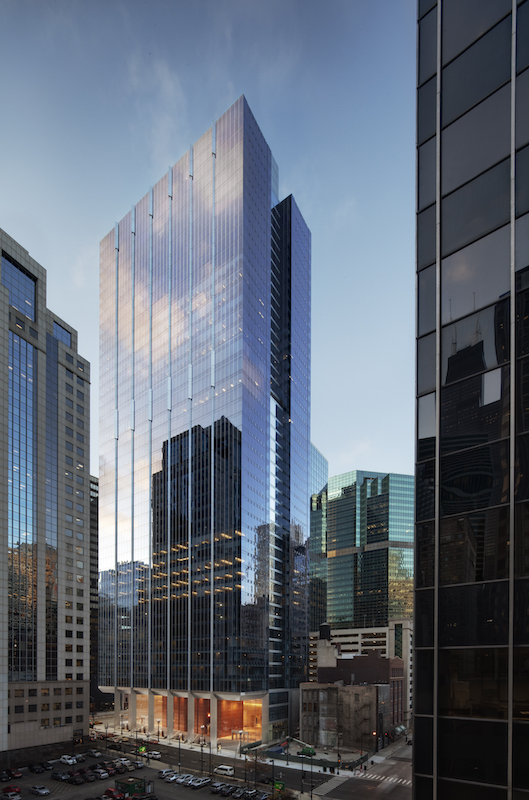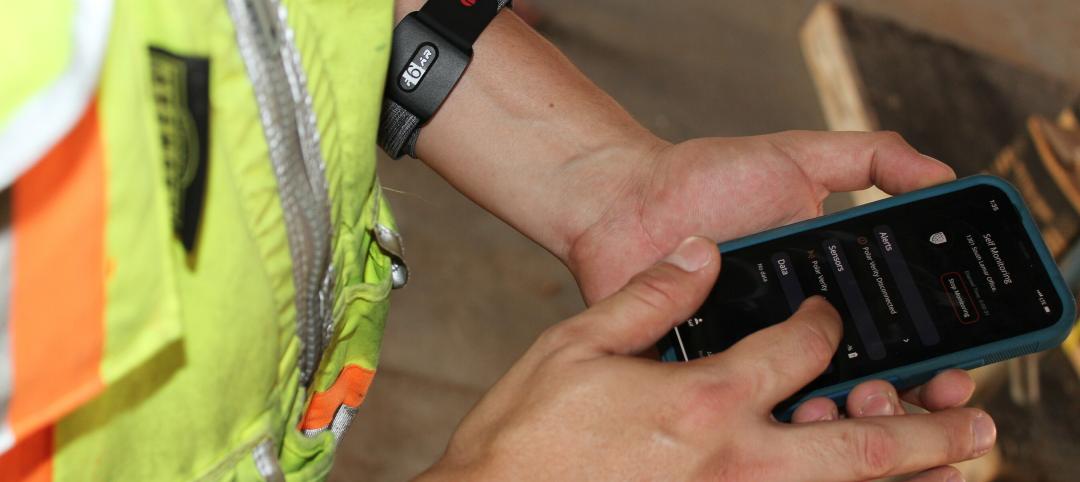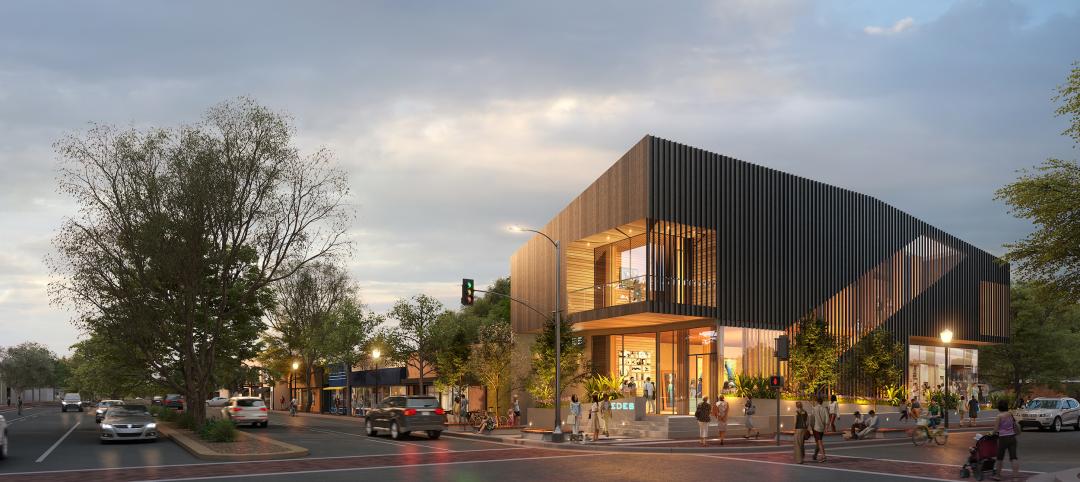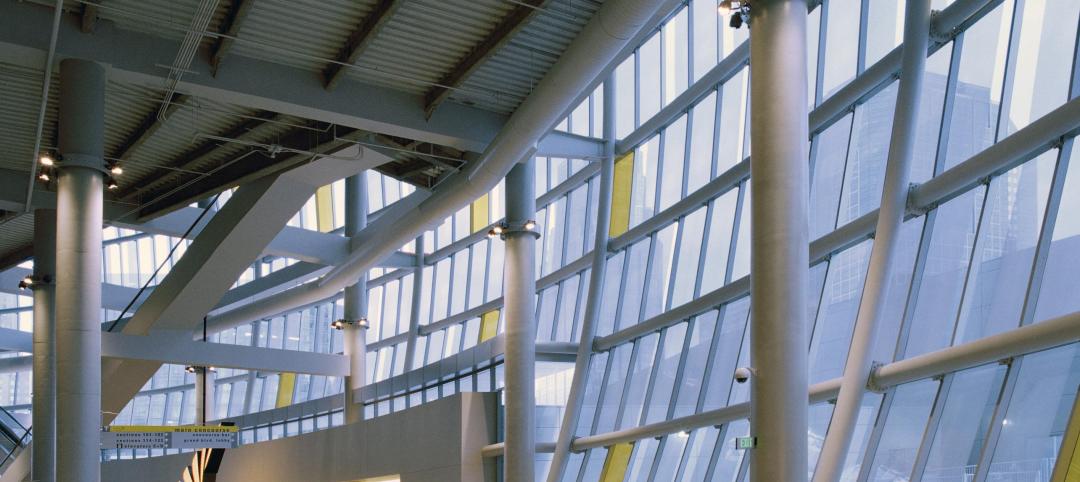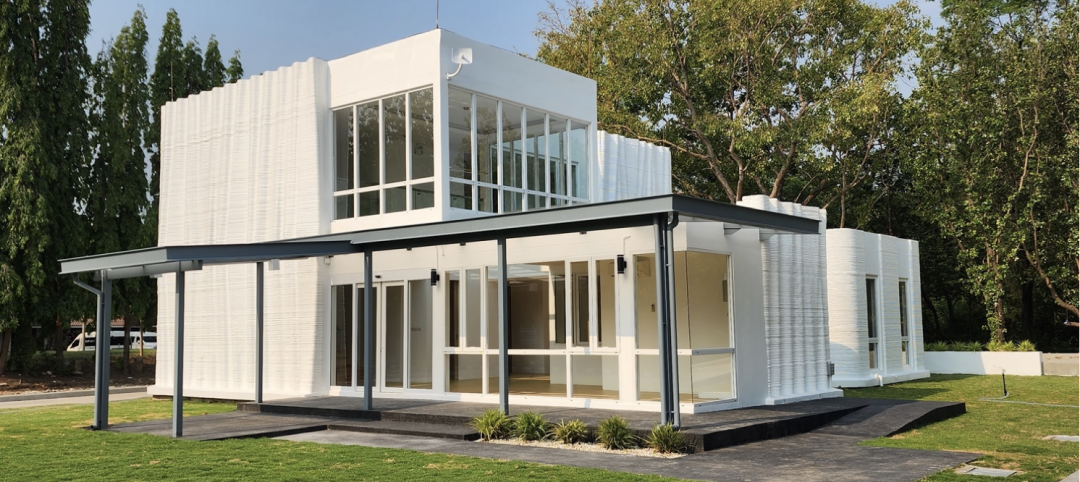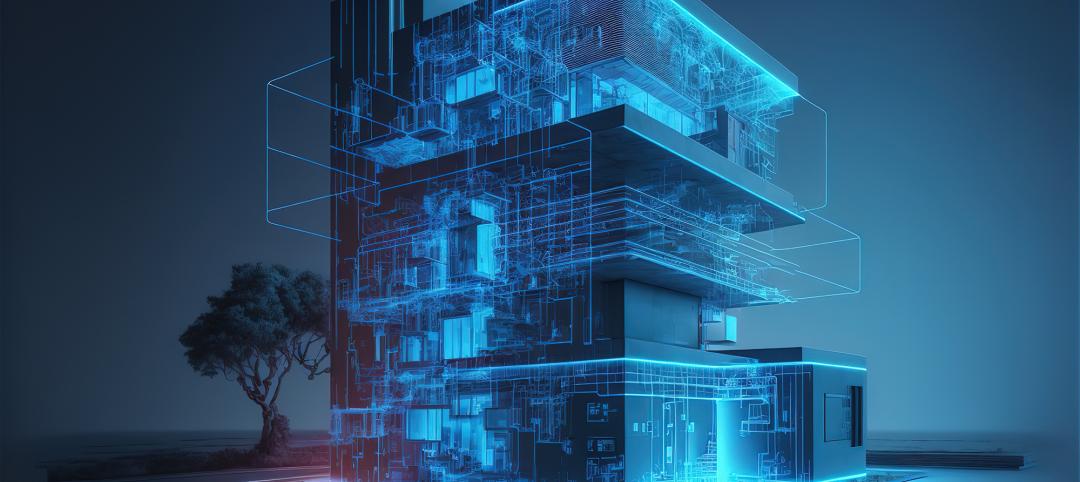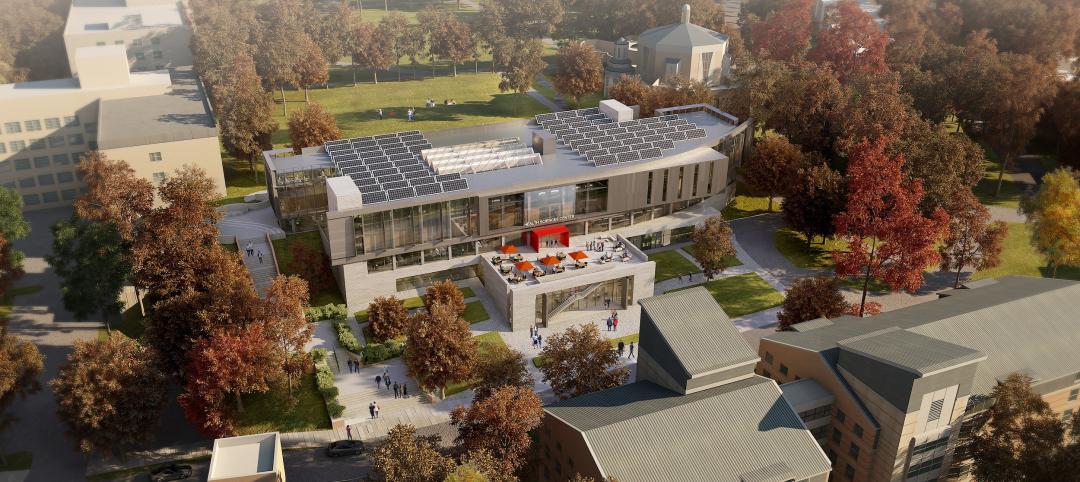What started out as a consulting assignment ended with the installation of a new intelligent building platform, incubated by a leading engineering design firm, into two high-rise office buildings in Chicago.
The IoT-enabled platform, which unites a building’s various workflows, is from Cohesion, a company launched in August 2018 after being spun out from Environmental Systems Design (ESD), which has been at the forefront of designing intelligent buildings. The two buildings in which Cohesion’s app is now live are owned by The John Buck Company, a Chicago-based real estate services developer.
John Buck had initially hired ESD to upgrade the technology in different buildings within the developer’s portfolio. After John Buck asked about possible vendors, ESD decided that it would develop the app itself, according to Laura Hagan, Cohesion’s director of marketing.
She explains that the two buildings—the 35-story, 807,000-sf 151 North Franklin, which opened in 2018; and the 48-story 1.12-milliion-sf 155 Wacker Drive, which opened in 2009—are rigged with I-nodes, little black boxes that, she says, act like routers that connect different systems. The I-nodes transmit data to Microsoft’s Azure Cloud, which in turn supports the app.
One of Cohesion’s software partners is Iotium, whose product integrates with and connects systems already in the building.
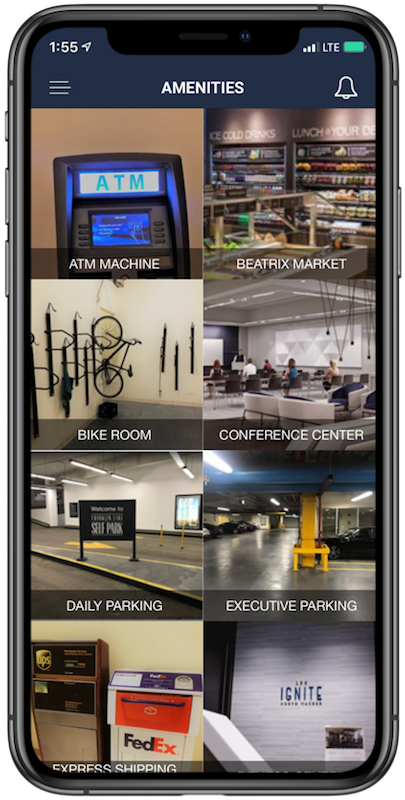
Building occupants can use Cohesion's app to gain more direct access to a building's amenities. Image: Cohesion
Cohesion’s software provides building occupants with comprehensive and direct access to their building’s amenities, information, and documents. It also provides a single interface for occupants to take actions, such as reserving parking spots and bike storage, or viewing the availability of equipment in the building’s fitness center.
Select tenant companies have chosen to launch mobile credentials and/or building visitor management functionalities. So, for example, if a tenant invites a guest to a meeting in the wired building, Cohesion would streamline the process by setting up the appointment, alerting security and relevant parties about the guest, and would send an email to the company upon the visitor’s arrival.
All 13 tenant companies at 151 North Franklin and the 40 tenant companies at 155 Wacker are using the app. When a new tenant comes into the buildings, they are onboarded onto the app.
“The real estate industry is experiencing significant technological disruption, and our solution benefits all stakeholders across the operational lifecycle—from owners to tenants,” says Thru Shivakumar, Cohesion’s CEO. “By connecting all the systems and human interactions in a building, we can provide the most powerful insights to deliver efficient and sustainable building operations,”
Cohesion charges the building’s management a setup fee and a monthly service fee. “It’s up to them whether they want to pass along those costs to the tenants,” says Hagan.
The new company is currently in fundraising mode, and is expected to close its latest financing round in June, at which point it plans to hire 35 employees over the following 12 months. (Cohesion currently operates with a 24-person team located in Chicago and Banaglore, India.) Hagan says that, including John Buck, Cohesion has commitments from three developers across eight buildings.
It also has an innovation pipeline to develop new uses for its app, possibly including building performance analytics.
Related Stories
Mechanical Systems | Jun 16, 2023
Cogeneration: An efficient, reliable, sustainable alternative to traditional power generation
Cogeneration is more efficient than traditional power generation, reduces carbon emissions, has high returns on the initial investment, improves reliability, and offers a platform for additional renewable resources and energy storage for a facility. But what is cogeneration? And is it suitable for all facilities?
AEC Innovators | Jun 15, 2023
Rogers-O'Brien Construction pilots wearables to reduce heat-related injuries on jobsites
Rogers-O'Brien Construction (RO) has launched a pilot program utilizing SafeGuard, a safety-as-a-service platform for real-time health and safety risk assessment. Non-invasive wearables connected to SafeGuard continuously monitor personnel to prevent heat exhaustion on jobsites, reducing the risk of related injuries. RO is the first general contractor to pilot this program.
Mass Timber | Jun 13, 2023
Mass timber construction featured in two-story mixed-use art gallery and wine bar in Silicon Valley
The Edes Building, a two-story art gallery and wine bar in the Silicon Valley community of Morgan Hill, will prominently feature mass timber. Cross-laminated timber (CLT) and glulam posts and beams were specified for aesthetics, biophilic properties, and a reduced carbon footprint compared to concrete and steel alternatives.
Engineers | Jun 5, 2023
How to properly assess structural wind damage
Properly assessing wind damage can identify vulnerabilities in a building's design or construction, which could lead to future damage or loss, writes Matt Wagner, SE, Principal and Managing Director with Walter P Moore.
Cladding and Facade Systems | Jun 5, 2023
27 important questions about façade leakage
Walter P Moore’s Darek Brandt discusses the key questions building owners and property managers should be asking to determine the health of their building's façade.
Office Buildings | May 15, 2023
Sixteen-story office tower will use 40% less energy than an average NYC office building
This month marks the completion of a new 16-story office tower that is being promoted as New York City’s most sustainable office structure. That boast is backed by an innovative HVAC system that features geothermal wells, dedicated outdoor air system (DOAS) units, radiant heating and cooling, and a sophisticated control system to ensure that the elements work optimally together.
AEC Tech Innovation | May 12, 2023
Meet Diverge, Hensel Phelps' new ConTech investment company
Thai Nguyen, Director of Innovation with Hensel Phelps, discusses the construction giant's new startup investment platform, Diverge.
3D Printing | May 12, 2023
World’s first 3D-printed medical center completed
3D construction printing reached new heights this week as the world’s first 3D-printed medical center was completed in Thailand.
AEC Tech | May 9, 2023
4 insights on building product manufacturers getting ‘smart’
Overall, half of building product manufacturers plan to invest in one or more areas of technology in the next three years.
University Buildings | May 5, 2023
New health sciences center at St. John’s University will feature geothermal heating, cooling
The recently topped off St. Vincent Health Sciences Center at St. John’s University in New York City will feature impressive green features including geothermal heating and cooling along with an array of rooftop solar panels. The geothermal field consists of 66 wells drilled 499 feet below ground which will help to heat and cool the 70,000 sf structure.


